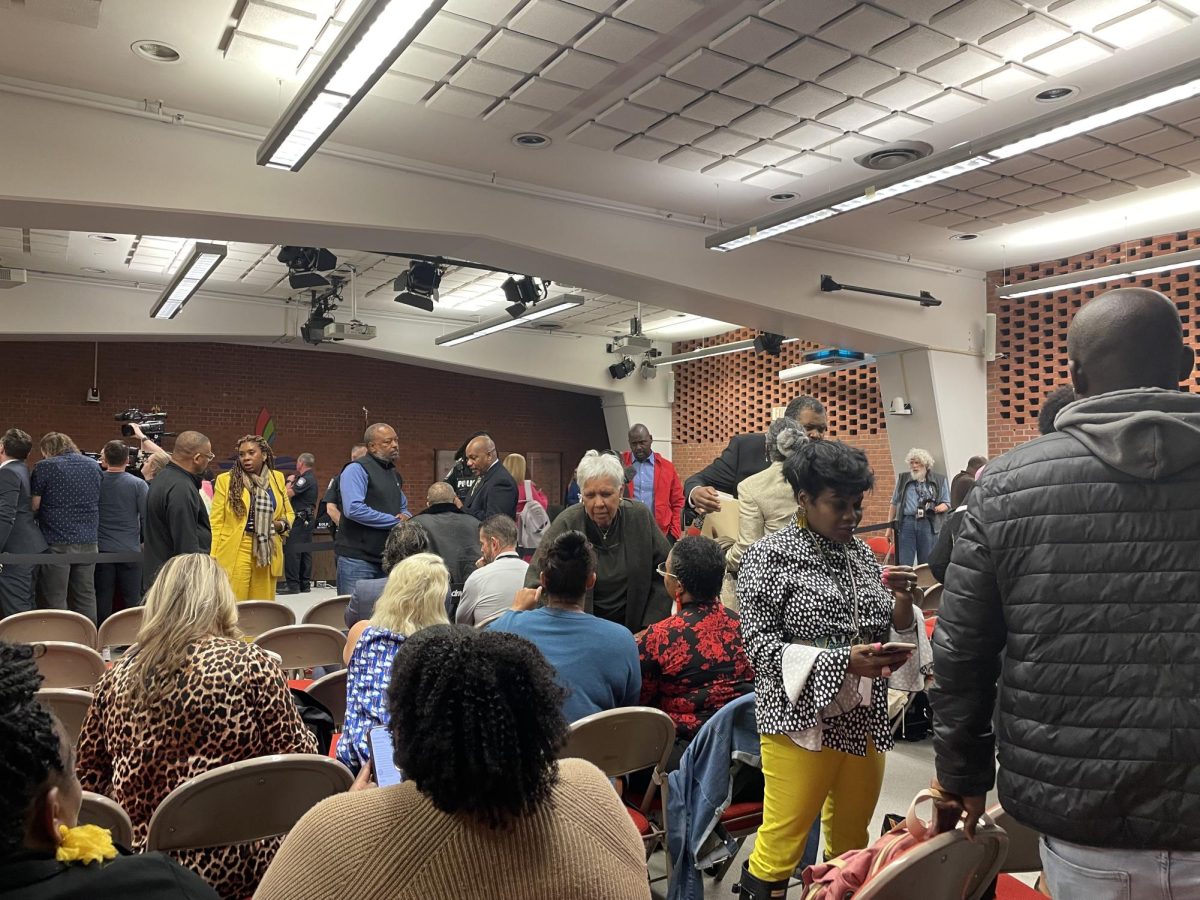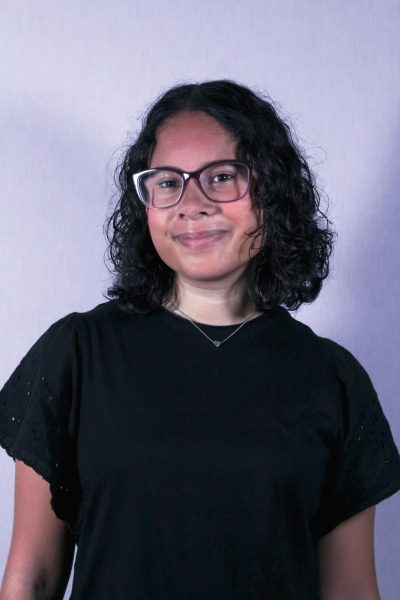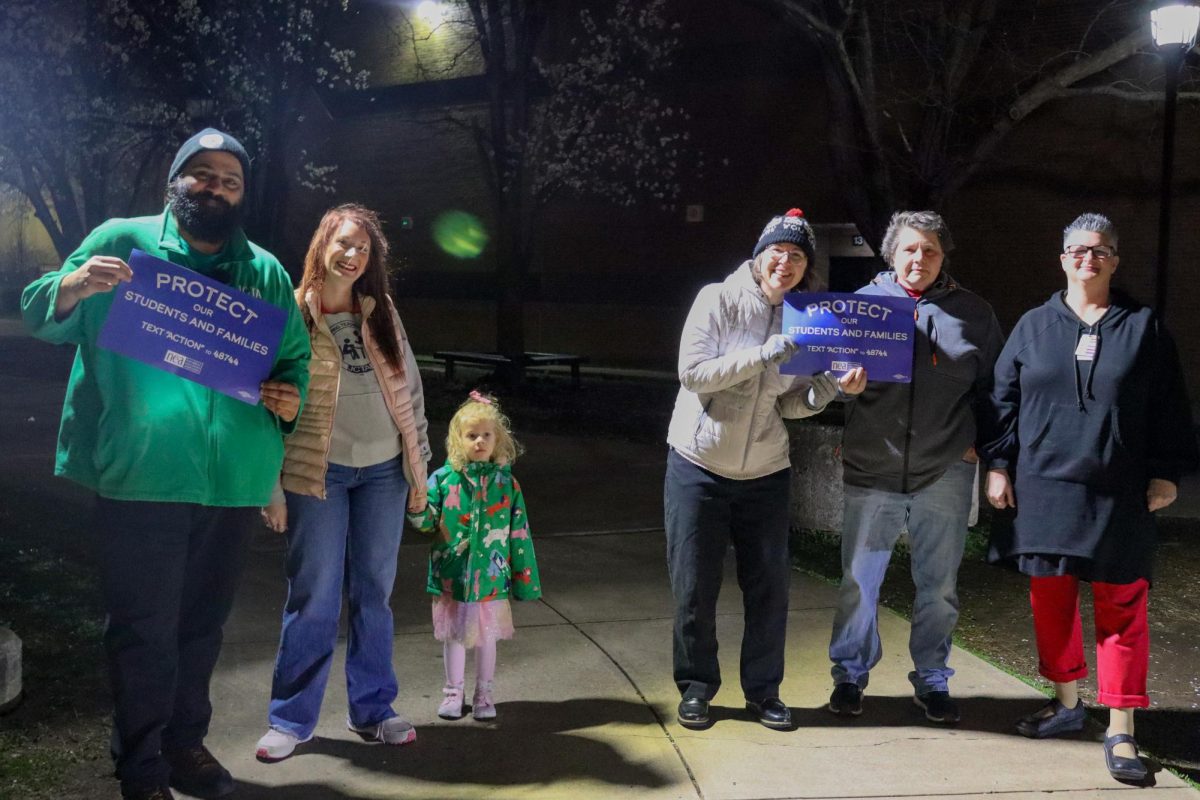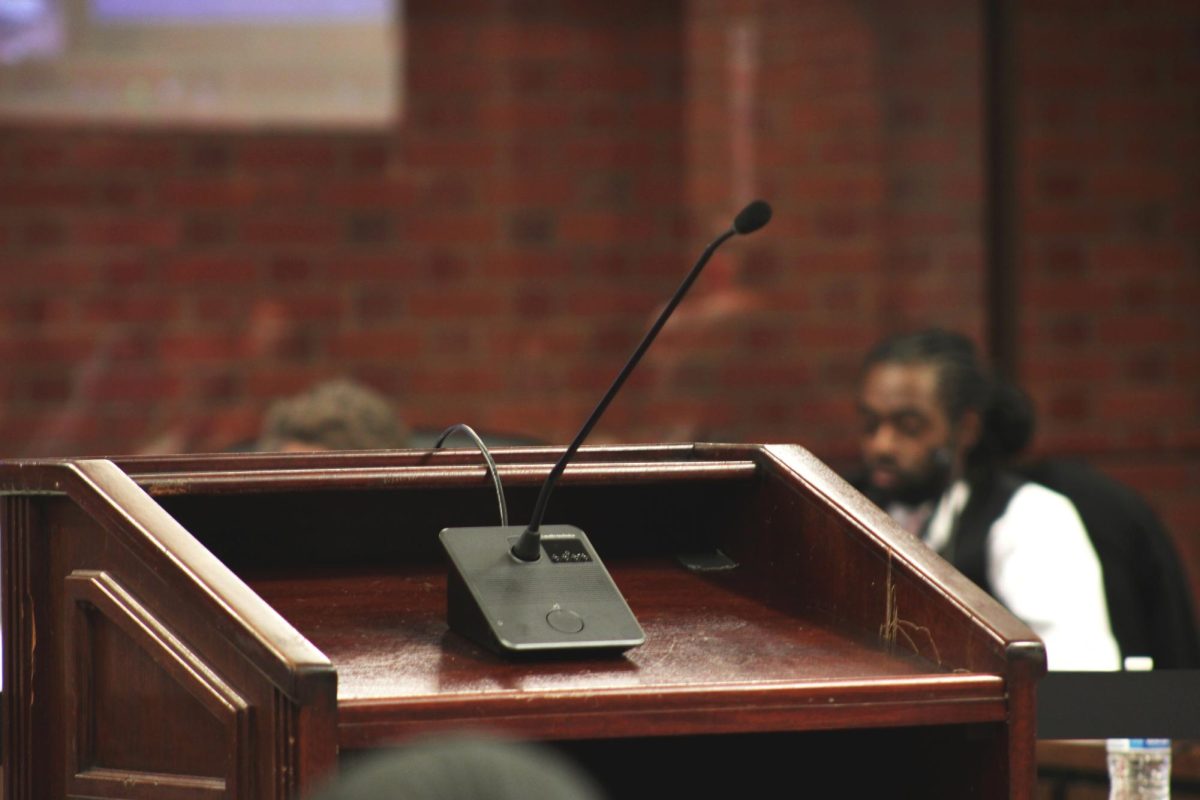This Wednesday, April 10, the JCPS Board of Education voted 4-3 to end busing to all magnet and traditional schools except for Central High School and Western High School. The last-minute meeting was called for by Chris Kolb, Joe Marshall and Linda Duncan, despite backlash from community leaders.
Graces James and W.E.B. DuBois academies will also receive transportation, as they are categorized differently by JCPS than other magnet schools. Transportation will also be provided to magnet students with certain disabilities, or students who are homeless, due to federal requirements.
After the board postponed making a decision on the transportation plan at the board meeting on March 26, many assumed the decision would be made at the next scheduled meeting on April 16. Instead, the three board members who arranged this special meeting gave less than 24 hours notice in what some say was an attempt to prevent the public from protesting as they did on March 26.
“The meeting itself was an act of white supremacy. It was really unfortunate the way this board meeting came about 24 hours before community reach and four days before the normal board meeting was scheduled to meet. I feel like that’s an incredible insult to this community and community participation,” Lyndon Pryor, the Chief Engagement Officer at the Louisville Urban League said.
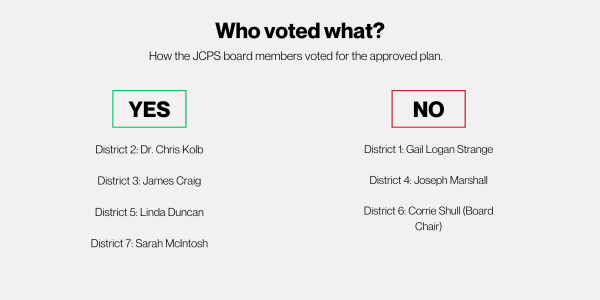
The vote was split along racial lines with Gail Logan Strange, Joseph Marshall and board chair Corrie Shull voting against the proposed plan.
While the nay votes attempted to stall the vote until a later date to allow for more community input, the transportation department repeatedly asserted that they needed a plan approved immediately as they are already behind schedule to route buses successfully for the first day of school.
“We sat in front of the US Attorney’s Office who brought us data that said our black and brown kids are missing [school] at a much higher rate than our white students,” Superintendent Marty Pollio said at the board meeting.
While many community members are concerned that reducing transportation to magnet and traditional programs would have harmful impacts on equity, Pollio pointed out that when students are consistently late to school under the current transportation system, that is also inequitable.
“We’re going to be cutting lost minutes by over half, maybe two-thirds from what they were this year with this plan,” Chris Harmer, the chair of the Alliance to Reclaim Our Schools (AROS), a part of the National Network for Equity in Public Education, said, although AROS has taken no stance on the decision. “So this is a victory that they brought this back and spent the extra attention last month.”
The board proposed four different plans. The first plan, discontinuing all magnet and traditional school transportation, was expected to result in consistently on-time buses. The second plan, which board members eventually voted in favor of, would cut transportation to all magnet and traditional schools except for high schools with a 75% free or reduced lunch threshold. This plan is expected to result in some delays.
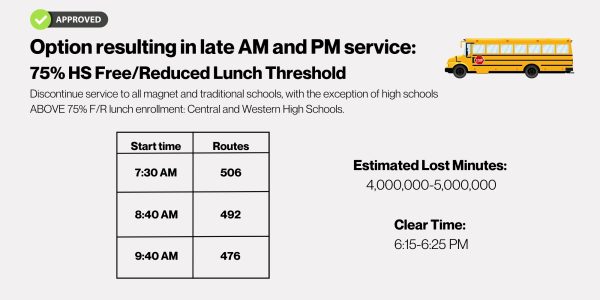
The third plan would cut transportation to all magnet and traditional schools except for any K-12 schools with a 75% free or reduced lunch threshold, also resulting in delays and lost instructional time. The fourth plan considered would not make any changes to transportation services and has been deemed unfeasible by the board.
The meeting at the Van Hoose Center did not permit any speaking or questioning time for members of the public due to its special nature. As constituents filed into the packed building, and others waited outside for the duration, community response to the possible decisions varied.
“When you take away that opportunity for folks to be able to attend our best schools, we’re just perpetuating more of the civil poverty and oppression that exists in this city,” Joi McAtee, a community member in attendance at the board meeting said. “These decisions have long-standing consequences.”
JCPS board and community members alike worry about the equity implications the decision will have on minority students in the district who are more likely to have difficulty finding alternative rides to school.
“I am incredibly disappointed in what the board did tonight. I mean the meeting itself was an act of white supremacy,” Chief Engagement Officer at the Louisville Urban League Lyndon Pryor said. The board’s decision, he feels, is inequitable and not researched enough for the district to be prepared for proper implementation.
“I think it’s gonna affect people of color, people of a lower economic status,” Louisville Metro Councilwoman Donna Purvis said. “And what I’m upset about is some kids were midway through finishing up programs at certain schools, and now to be told we can’t get you there, you have to go to your home school that may not have that program, that could really kill a whole career path.”
As Manual is not included in the 75% Free/Reduced Lunch threshold, there will not be transportation provided to most Manual students next year. Some students are already preparing for the consequences of the decision. At Manual, students such as Rahni Allen (11, YPAS) are rushing to find alternative plans so that they can continue to attend and stay involved at Manual.
“It’s like a never ending circle of who’s going to take me, what time will I get to school, and other stresses,” Allen said. Allen, a theater major, does not expect that she will have to switch schools, but she does expect her attendance to be negatively impacted by the new decision.
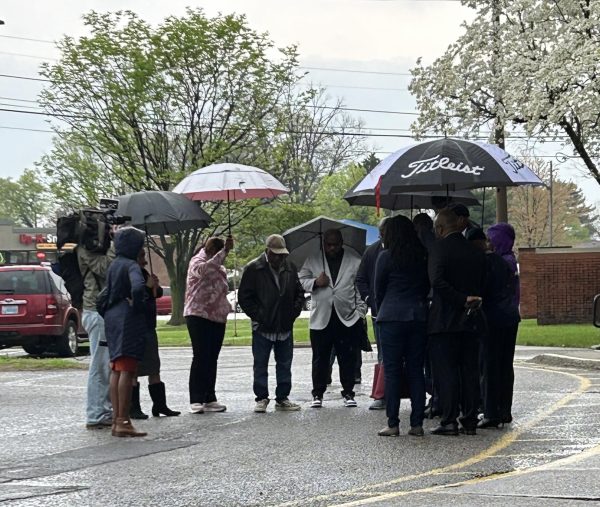
“The busing update will not affect what school I go to, but I will have to stay after school everyday until 5 to be able to be picked up by my parents, because they have work and I have 3 other siblings,” Yiwon Yina Hwang (9, J&C) said. Some Manual students, instead of staying late, may have to forgo extracurricular opportunities to get transportation.
“Without being able to ride a bus, I may have to drop out of some after school activities so I can carpool to get my siblings,” Lily Berfield (10, VA) said. While not every magnet school will lose transportation, the reality facing many JCPS students concerns many.
Although the families and teachers of Central High School have led the charge to advocate for transportation for all magnet and traditional programs, meeting attendees wanted the board to recognize that this decision was about more than just one school.
Sarah Wollam, the orchestra director at Central High School, was appreciative her students would still receive district transportation, however, she worries about the opportunities other students will be missing out on if they cannot stay in their magnet or traditional programs across the district.
“I actually would not have been able to go to Male had I not had transportation. The school that I would have had to go to instead does not have an orchestra program, so I would not be an orchestra teacher today had this happened during my time in school,” Wollam said.
For many magnet and traditional students left behind in the wake of the board’s decision, the future is uncertain. However, board chair Shull sends a message of strength to Manual students.
“We want you to continue to lift your voices and continue to work for what you believe in. Your voices matter. Your ideas count, and we are proud that you are students in JCPS,” Shull said.






